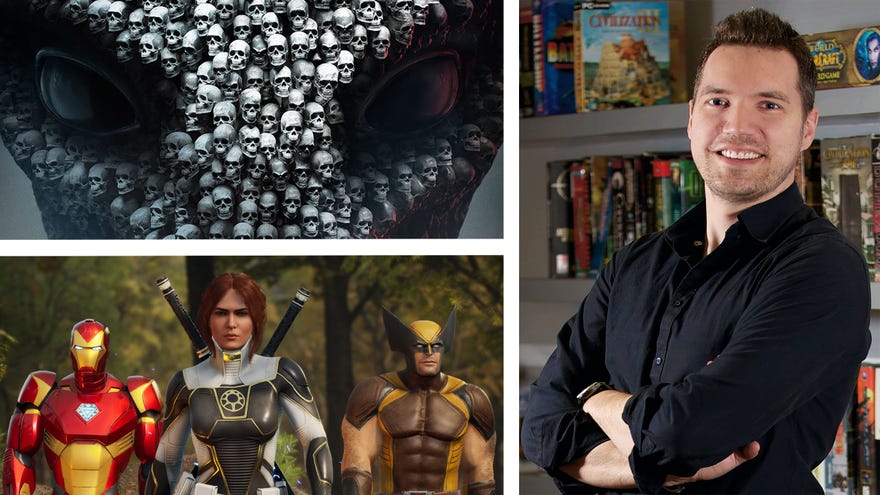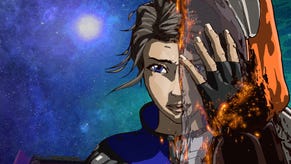XCOM's Jake Solomon is swapping turn-based tactics for life sims, and he's not coming back
As the XCOM and Marvel's Midnight Suns director leaves Firaxis, he chats to us about what's next, and how life sims have been creeping into his work ever since the birth of Minecraft
When I meet Jake Solomon at GDC, it's his third day of unemployment. The XCOM and Marvel's Midnight Suns director and designer announced he was leaving Firaxis back in February, but his final day at the studio where he made his name and worked for more than twenty years was still very fresh in his memory. "It's surreal," he says. "For probably the next ten years, I'll refer to it as 'we' when we talk about Firaxis, and it's sad to think it's not the right pronoun anymore. It's exciting, but a little terrifying."
On the face of it, that panic might seem unfounded. Over the last decade, Solomon has become one of the most revered names in turn-based strategy games. Having cut his teeth on many of Sid Meier's Civilization games in his early years at Firaxis, he went on to become the designer who spearheaded the revival of XCOM with Enemy Unknown in 2012, before going on to direct its even more beloved sequel XCOM 2 and its War Of The Chosen expansion a few years later. Most recently, he was creative director on Marvel's Midnight Suns, which allowed him to marry his life-long love of Marvel comic books with the thrilling tactical combat he's so well known for.
Solomon's next adventure, though, won't have the certainty of Midnight Suns' supercharged attack cards, or even the tease of an XCOM hit percentage backing him up. For not only is it Solomon's third day of unemployment when we speak; it's also the day after he revealed his plans to leave turn-based tactics games behind altogether. Instead, his sights are now set on the life simulation genre, a move that, at first glance, seems at odds with his career as a strategy designer. But over the course of our hour-long chat, it becomes increasingly clear that life sims have been a life-long obsession for Solomon, and he might have even made one by now had the development of XCOM 2 gone a little differently.
Just as XCOM 2 was kicking into gear, Solomon tells me his publisher 2K came knocking and asked him what his dream 'big idea' might be. Straight away, Solomon says he pitched a voxel-based animal creation game called Dusk. It was an idea that stemmed from his forays into Minecraft at the time - a game he still plays today, albeit now in the company of his two daughters. "[Minecraft] is in its own way perfect," he acknowledges, but ever the designer, the idea of having his own stab at a game like that lit a fire in him.
Indeed, Solomon says some of the best experiences he's had in the last five years are games that are primarily platforms for creation. "I think simulation-style games are great at that, and I think that Minecraft is a great example. Just by playing the game, you end up with something that you've created. And that's such a powerful feeling. People do like to express themselves, and being able to do that through games, I think it's like almost limitless potential."
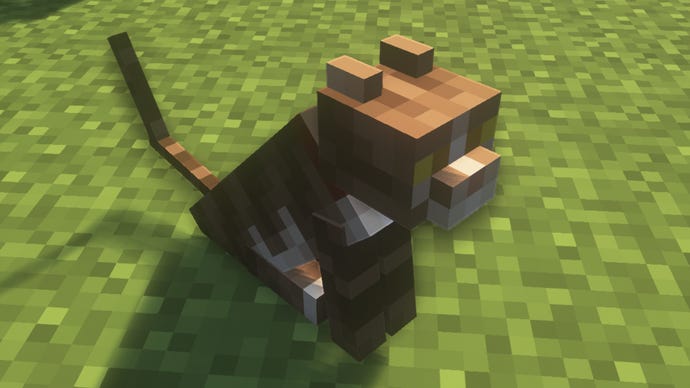
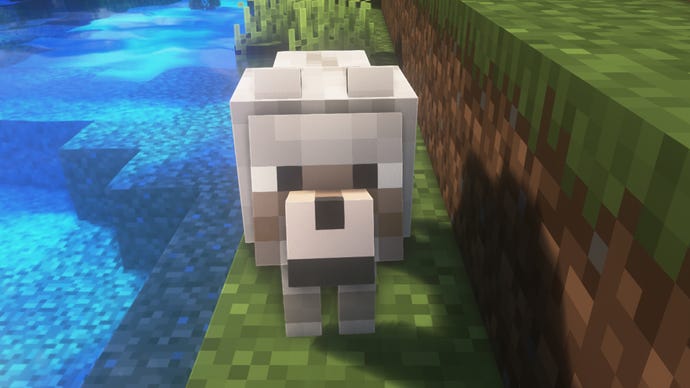
2K greenlit development for Dusk, and Solomon set to work on it. Unfortunately, Dusk never quite made it to fruition, as around ten months later Solomon was called back to take the reins on the then quite wobbly XCOM 2, leaving his dream game to fade into its own kind of twilight. In an alternate timeline, Dusk would have been "kind of like No Man's Sky, but if you were the one creating the world, as opposed to visiting it," he says. But it wasn't just XCOM 2 that ended up being the nail in the coffin for Dusk. Tech issues also abounded, which Solomon says were "pretty overwhelming" at the time to try and make his idea a reality.
"Finding the game reason for why am I sticking horns on a rabbit? That was giving me trouble."
But there was also the small problem of "coming up with the reason" for why you'd be creating these animals in the first place. "You can have a creative mode where you can do all that stuff, but I do believe in being game-led where there's game objectives sitting over the top of the toy, as I would call it," he says, citing the dual nature of Minecraft and Fortnite as prime examples of this. "Finding the game reason for why am I sticking horns on a rabbit? That was giving me trouble."
Even now, though, with better tech and the freedom to do whatever he wants, Dusk is not the game Solomon wants to make next. "Somewhere deep in the recesses of my mind, some part of it is spinning on," he muses. "But I do think for a game like that, you have to have a pretty strong theme. [...] Evolving animals, even now, I think how many unique creations can that be, as opposed to something like Minecraft where it's almost endless what you can do? How many variations of animals can you create where you feel this is completely unique and authentic to me? It's not as powerful, when I think about it."
In fact, Solomon doesn't know what his next game is going to be just yet. Rather, his more pressing concern is first establishing his own studio, and when we speak he admits, "I'm not even in that space yet". While his studio's yet to be formed, though, he's certainly been thinking about it a lot, and despite only being three days off Firaxis' payroll, Solomon confesses he's "not great at not working."
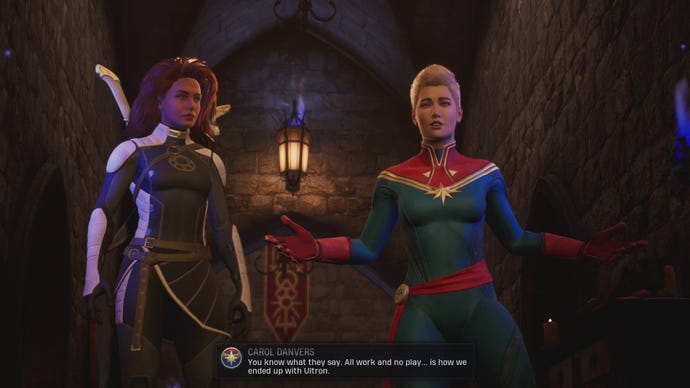
"It really is a thing where I love design," he says. "I love thinking about design systems, I love thinking about any idea. I'm gonna chew on it and chew on it and chew on it. I just can't not have that in my head. Even if I was on vacation, the back of my mind is working. It's not in a way that takes away from the others around me. It's just what my mind naturally goes to - thinking about the game systems and thinking about how to improve them all the time."
He stops for a moment, and laughs. "Listen to me, I sound miserable! I'm not! I'm truly a generally happy guy. Maybe I should take a vacation. See what that's like."
Indeed, it's clear that Solomon's passion for making games hasn't dimmed in the slightest now he's struck out on his own. "Even at Firaxis, it was never a case of 'I'm burned out' or any of those things. I love that company. I love the games we made there." It's just that that passion now lies elsewhere, and outside of Firaxis' wheelhouse.
I ask him if he considered pitching his new ideas to Firaxis, or even to publisher 2K, like he did with Dusk. But while Solomon says that, yes, he could have taken that route, he ultimately felt that "it would have been a really big left turn" for both him and the studio as a whole. "Firaxis has so many great opportunities, there are so many great, historic franchises there, but they have the people to do it. And so for me to then try and throw another wrench in there and say, 'Hey, how about this other new thing?' I think it just wouldn't have been fair to everybody."
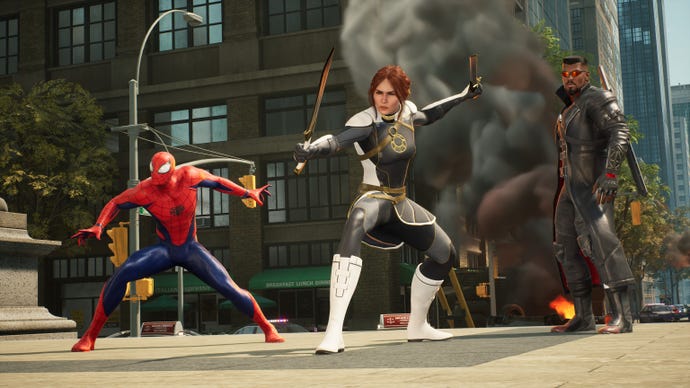
Instead, he decided to wrench himself away from the studio he's worked all his life - a decision that had been gradually forming in the back of his mind in the months leading up to the launch of Marvel's Midnight Suns. He speaks with great pride about that game, and the people who helped him make it, and it's clear he still loves the turn-based tactics genre as a whole, too. But as he describes it, "I started to think about what's next, and thinking about a turn-based game, there's obviously a lot about that that appeals to me. But for the first time, it didn't appeal to me as much." His mind was lighting up with other ideas, he tells me, "and I started to realise that's no way to go into another big project."
"There's obviously a lot about [turn-based tactics games] that appeals to me. But for the first time, it didn't appeal to me as much."
In classic XCOM style, it was time to take a risk. Or was it? In many ways, you could say that Solomon's been building toward the life sim genre all along. "From model train sets to doll houses to army men, there's something about life in miniature that I think is just naturally appealing," he says. But it's the playful, almost toy-like possibilities of creating your own stories within that miniature life that he finds most attractive. For him, that's best represented by building something new in Minecraft, or watching some mad scenario play out in Dwarf Fortress or The Sims 4. He even argues that Julian Gollop's original X-COM "was way more of a simulation than a strategy [game]."
But I think many will agree Solomon's own pair of XCOM games fit into this mould as well - we've certainly filled enough pages of RPS with our own tales of doomed soldiers and wimpy squads over the years, and heck, folks even took to Facebook at one point to create an entire memorial wall for their droves of fallen teammates. Admittedly, Marvel's Midnight Suns didn't lend itself quite as well to this kind of emergent storytelling, what with its cast of fixed, pre-conceived heroes and greater emphasis on scripted narrative events that take back at the Abbey between your main missions. But it did also dip its toes into the RPG end of the life sim pool with its Persona-esque character relationships and the everyday drama that ensues with having two different super teams living under one roof.
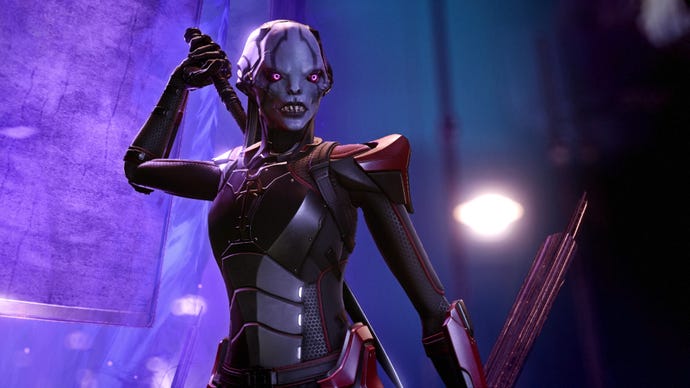
"Yeah, I think the best moments are the stories that are created," he says, when I ask him if he agrees that he's been gradually getting closer and closer to life sims in his work all along. "I love the scripted narrative [of Midnight Suns], but the best stories by far are the stories where they're created just by the systems that are in there." And as a designer, creating those systems is Solomon's bread and butter. "Simulations are all driven by system design as well. It's a number of systems interacting in ways that are surprising. And that can happen in our game as you said before. XCOM is a great example of a bunch of systems - there's so many systems that it would be hard to track them all as a player - so you will get surprised and say, 'Oh man, I did not expect that to happen.' That's as dramatic as any scripted narrative anybody can write."
He concedes that Midnight Suns lost some of that XCOM drama. "You don't get to say like, 'Oh, yeah, this is Frankie, and he's this terrible sniper, and I swear to God, he misses like every shot,' but then one time he does something great, and you're like, 'I love this guy'. Those stories are more impactful, because you have ownership of them as a player."
In fact, Solomon cites just three things that allow that sense of ownership to take hold in XCOM. "We give them a home country, you give them a nickname once they reach a certain rank, and then you give them a specific class. Those three vectors are always enough, that's all players need to say, 'All right, I've got a story for this.' Sometimes you randomise the customization and they come out weird wearing like a Fedora or something like that, and you're like, 'All right, this guy, I know exactly what this guy's about. He's got a ponytail and a Fedora. I know I wouldn't like this guy immediately. But he's a great ranger.' I always like that, because that always made me giggle, and it was really fun to then see players love that stuff, too."
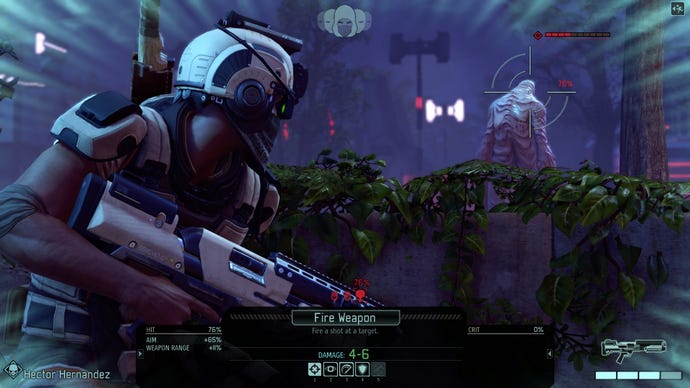
That's not to say he doesn't have any affection for Midnight Suns' style of story-telling, however. By his own admission, he's "a really, really, like, super Marvel Comics nerd, so it was just a different experience because the game was very narrative [driven]. XCOM is almost entirely mechanics, right? The story is there, it's great and serves a purpose. But a lot of times with the story, the purpose it serves is to get you from this mechanic to that mechanic.
"In Midnight Suns, that wasn't the case. The narrative had a much stronger role. And so it was different in the way that I thought about the characters. In XCOM, you could just think about them as a series of systems, and with a strong theme of soldiers fighting aliens, but Marvel is much much different. And for me, it was really enjoyable just because I'm such a passionate fan of Marvel. It was personally very, very enjoyable for me to play in that toolbox."
Whether that kind of scripted narrative will have any place in Solomon's next game remains to be seen, of course, but when I ask Solomon if his own gaming tastes have changed to become more simulation-based over the years, I'm quite surprised by his answer.
"I've always liked simulation, but I've always kind of viewed it as like, 'I do not know how they design this stuff!'"
"I've always liked simulation," he says, "but I've always kind of viewed it as like, 'I do not know how they design this stuff!' Because for me, I always tend to veer backwards. I like the safety of putting the rules front and centre."
It's a trait he picked up from working under Sid Meier, he says, and even now Solomon prefers his work to have "clear-cut rules that are almost board game-like" so players know what to expect. "That is typically the way that I like to approach design. The player knows what's going to happen, and if you do this, you get that, and I think that was even more evident in Midnight Suns. We just tried to put as much information out there in front of the player as possible."
Taking that information away will be his biggest challenge going forward, he says, but he's also not deterred by the thought of simulation games being a bit of a black box when it comes to actually making one himself. He confesses to being a little frightened by the prospect in front of him, but it's also a process he's innately familiar with after designing Midnight Suns' card system, which he had "no experience" of making before either.
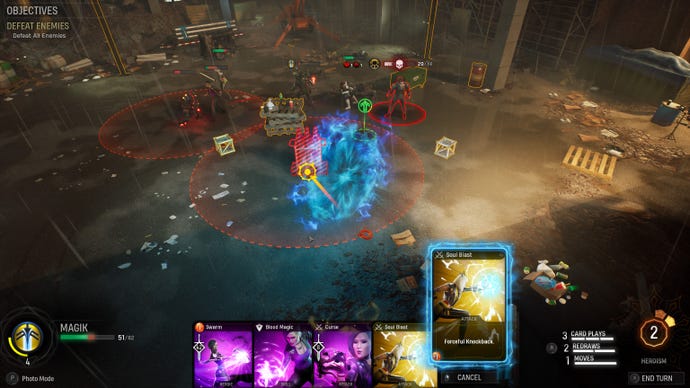
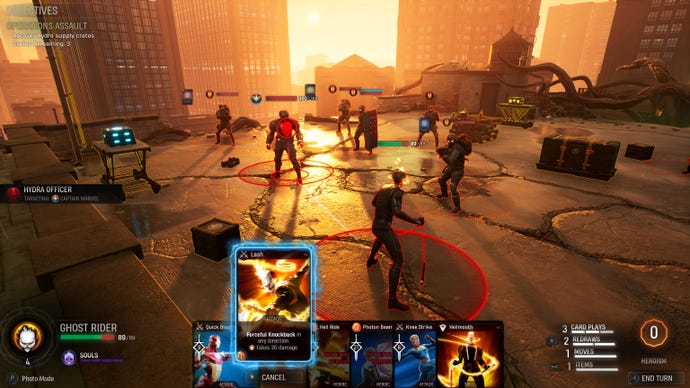
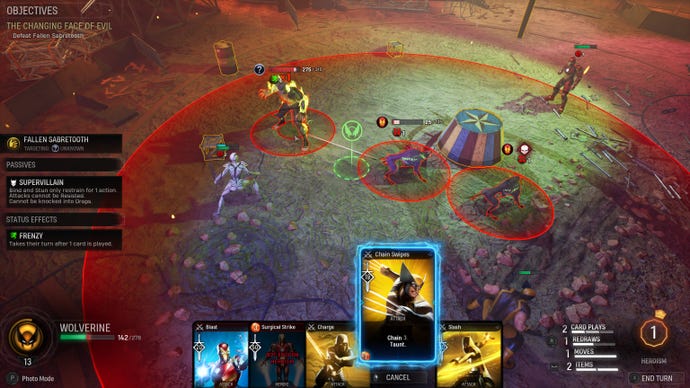
"When we first started approaching that challenge, it was all so scary because there are so, so many good iterations on card mechanics," he says. "I've always loved them and viewed other people's designs as being so elegant and clever, and I didn't understand how to do it. But it was very, very rewarding. So I at least have that experience to say, 'Okay, I can learn some new design skills!' I love that part of Midnight Suns, and so that is actually really exciting to me."
He also believes that the initial backlash around Midnight Suns' reveal has better prepared him to deal with the public repercussions of daring to do something a little different. "I never had an experience where people had expressed disappointment before playing, you know? I think a lot of people were open to it. […] But I also totally get it when people look at the images coming out and go, 'What the fuck is that? Are those… are those cards? Cards!?' So yeah, I can sympathise with people for that reason."
The greatest lesson Solomon takes with him, though, is one that came from his mentor Sid Meier, right back when he first started making an early prototype for what would eventually become XCOM: Enemy Unknown. Developed during a six month window between the release of Sid Meier's Pirates and Civilization Revolution, this was a prototype that famously crashed and burned internally. Solomon was, admittedly, still finding his feet as a designer at that point, having previously done mostly programming and graphics work on his earlier projects at Firaxis, but if there's one piece of advice he could give to his former self, it would be this:
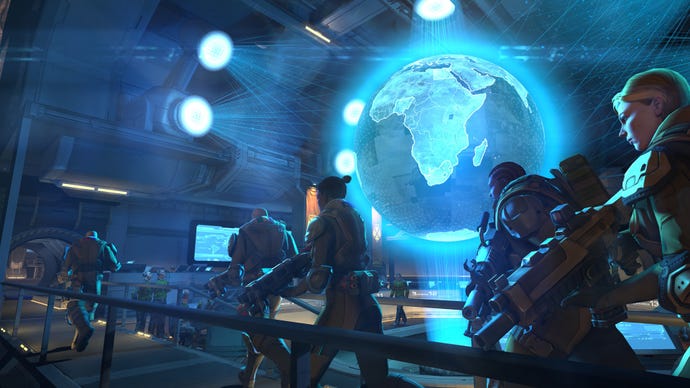
"I would, very clearly, say that as a designer you have to look the scariest thing in the eye," he says firmly. "The worst thing in human nature is wishful thinking - the idea that it's going to be okay. No, it's not going to be okay. You have to find the way to make it okay. It's not going to be okay when better art goes in, it's not going to be okay once this new engineering feature goes in. You must find what's going to make it okay.
"And the problem is that, as a designer, you did your best job!" he laughs. "You already put your best ideas in! And then it comes back and it's like, 'This is not fun.' You're like, 'Well, that was my best idea!' And your brain will be like, this is too stressful. […] That kind of anxiety - I know it sounds crazy - but that kind of anxiety is like my engine.
"Play the fucking thing and say to yourself, 'This is obviously not fun, and it's my responsibility to make it fun, like, 'What are you doing? Make a change, dude!'"
"I think when I was younger, I was just like, 'I'll work on an inventory system!' as opposed to going, like, play the fucking thing and say to yourself, 'This is obviously not fun, and it's my responsibility to make it fun, like, 'What are you doing? Make a change, dude!'" He grins. "Start with the first least fun thing and change it. Even if that was your best idea, 'Tough luck, dude! You're the one who got this awesome job of game designer.' Your job is to look the scary thing in the eye and say, 'Yeah, not good, I gotta find a way to do this better.'"
Despite those ups and down, though, looking back, Solomon is rightly pleased with the impact he's had on the turn-based tactics genre. "To some extent, I'm probably scared to ever touch it again," he admits. "I'd be afraid to go back to that." His pride for both his work and his fellow developers at Firaxis is palpable as our conversation draws to a close, but he's also confident that the designers and friends he's left behind "have fresher and newer ideas than me," and that they'll continue to make great games without him. "I think I'd be gun shy anyway, to mess up the contributions that I did make. I'm okay for those to stand. I'm okay with that."
